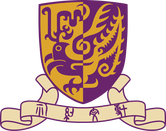Academic Qualifications:
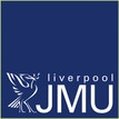
Doctor of Philosophy
Liverpool John Moores University
Faculty of Education
Research Concentration: Technology Assisted Education in Disaster Management
Completed in 2017.
Liverpool John Moores University
Faculty of Education
Research Concentration: Technology Assisted Education in Disaster Management
Completed in 2017.
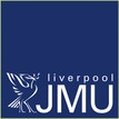
MPhil (Transfer) in Education
Liverpool John Moores University
Faculty of Education
Completed in 2013.
Liverpool John Moores University
Faculty of Education
Completed in 2013.
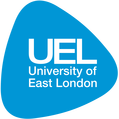
Bachelors of Arts in Business Administration, 2:1
University of East London
Royal Docks School of Business and Law
Final Year Research Project: Micro-credit in Western Europe. Case Study of the UK
Completed in 2010.
University of East London
Royal Docks School of Business and Law
Final Year Research Project: Micro-credit in Western Europe. Case Study of the UK
Completed in 2010.
Professional Qualifications:

Certificate in Effective Online Tutoring
Department for Continuing Education
Year of completion: 2012
This course is for teachers delivering education online, academics looking to develop new skills for teaching online courses at both undergraduate and postgraduate-levels courses, and organisations involved in Continuing Professional Development who wish to improve the effectiveness of their online and distance learning courses.
Department for Continuing Education
Year of completion: 2012
This course is for teachers delivering education online, academics looking to develop new skills for teaching online courses at both undergraduate and postgraduate-levels courses, and organisations involved in Continuing Professional Development who wish to improve the effectiveness of their online and distance learning courses.

Diploma in Teaching in the Lifelong Learning Sector
Year of completion: 2012
The Diploma in Teaching in the Lifelong Learning sector (DTLLS) is a teaching qualifications for the Further Education sector. This course supports the development and acquisition of the skills, knowledge and practice required of the full teacher role. There are 360 contact hours (directed study time) and 840 non contact hours (self directed study) which includes 150 hours of teaching practice, observed over a minimum of eight occasions.
This course was validated and awarded by OCR(Oxford, Cambridge and RSA) awarding body.
Dr. Syed holds Qualified Teacher Learning and Skills (QTLS) status which is a license to practice in the post-compulsory education and training sector (sometimes referred to as the lifelong learning sector).
SET Membership/QTLS Number: AK006429
Year of completion: 2012
The Diploma in Teaching in the Lifelong Learning sector (DTLLS) is a teaching qualifications for the Further Education sector. This course supports the development and acquisition of the skills, knowledge and practice required of the full teacher role. There are 360 contact hours (directed study time) and 840 non contact hours (self directed study) which includes 150 hours of teaching practice, observed over a minimum of eight occasions.
This course was validated and awarded by OCR(Oxford, Cambridge and RSA) awarding body.
Dr. Syed holds Qualified Teacher Learning and Skills (QTLS) status which is a license to practice in the post-compulsory education and training sector (sometimes referred to as the lifelong learning sector).
SET Membership/QTLS Number: AK006429

Certificate in Assessing Vocational Achievement (RQF)
Training Qualifications UK (TQUK)
This qualification is for practitioners who assess both occupational competence in the work environment and vocational skills, knowledge and understanding in environments other than the workplace – for example a workshop, classroom or other training environment. This qualification ensures a concrete understanding of the following:
-The principles and practices of assessment
-How to assess occupational competence in the work environment
-How to assess vocational skills, knowledge and understanding
Training Qualifications UK (TQUK)
This qualification is for practitioners who assess both occupational competence in the work environment and vocational skills, knowledge and understanding in environments other than the workplace – for example a workshop, classroom or other training environment. This qualification ensures a concrete understanding of the following:
-The principles and practices of assessment
-How to assess occupational competence in the work environment
-How to assess vocational skills, knowledge and understanding

Certificate in Negotiation and Conflict Management
United States Institute of Peace
Year of completion: 2010
This course provided a thorough conceptual framework to help practitioners structure their efforts in negotiation, with theoretical and practical investigations of hard-bargaining vs. problem-solving approaches, interests vs. positions, value distribution vs. value creation, coercive leverage vs. normative leverage, short-term agreements vs. long-term relationships, and other considerations necessary to the development of effective overall negotiating strategies.
These principles are illustrated in two extended case studies: the negotiation to bring a peaceful end to apartheid in South Africa, and the U.S., Soviet, and worldwide bargaining process that led to the Nuclear Non-Proliferation Treaty (NPT). The course then concludes by focusing on keys to successful negotiation, and practical steps to help you negotiate more effectively in real-world situations.
United States Institute of Peace
Year of completion: 2010
This course provided a thorough conceptual framework to help practitioners structure their efforts in negotiation, with theoretical and practical investigations of hard-bargaining vs. problem-solving approaches, interests vs. positions, value distribution vs. value creation, coercive leverage vs. normative leverage, short-term agreements vs. long-term relationships, and other considerations necessary to the development of effective overall negotiating strategies.
These principles are illustrated in two extended case studies: the negotiation to bring a peaceful end to apartheid in South Africa, and the U.S., Soviet, and worldwide bargaining process that led to the Nuclear Non-Proliferation Treaty (NPT). The course then concludes by focusing on keys to successful negotiation, and practical steps to help you negotiate more effectively in real-world situations.
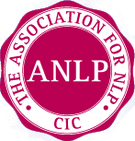
Diploma in Neuro Linguistic Programming
The Association for NLP
Year of completion: 2011
Neuro-Linguistic Programming (NLP) is a method of understanding how people achieve success in a wide range of fields such as sport, education, management and therapy. In 1974 its developers proposed that NLP would provide users with the tools to analyse, incorporate or modify any sequence of behaviour they observed in another human being. These NLP tools involve analysis of a person’s internal and external communication (linguistics) and the effects (programming) this has on the way their brain operates (neurology). In other words, NLP is about using the language of the mind to consistently achieve our specific and desired outcomes, this is what the NLP Diploma course will allow you to explore. The NLP Diploma course gave an insight into a range of NLP techniques, enabling therapists to integrate these skills alongside their own toolbox of techniques.
Theoretical information was provided throughout the NLP Diploma course, followed by exercises enabling the learner to practice and consolidate the skills of NLP.
The Association for NLP
Year of completion: 2011
Neuro-Linguistic Programming (NLP) is a method of understanding how people achieve success in a wide range of fields such as sport, education, management and therapy. In 1974 its developers proposed that NLP would provide users with the tools to analyse, incorporate or modify any sequence of behaviour they observed in another human being. These NLP tools involve analysis of a person’s internal and external communication (linguistics) and the effects (programming) this has on the way their brain operates (neurology). In other words, NLP is about using the language of the mind to consistently achieve our specific and desired outcomes, this is what the NLP Diploma course will allow you to explore. The NLP Diploma course gave an insight into a range of NLP techniques, enabling therapists to integrate these skills alongside their own toolbox of techniques.
Theoretical information was provided throughout the NLP Diploma course, followed by exercises enabling the learner to practice and consolidate the skills of NLP.

Certificate in Conflict Analysis
United States Institute of Peace
Year of completion: 2010
This course presented an introduction to the subject of conflict analysis, illustrating analytical tools used, with reference to two extended case studies, the conflict in Kosovo and the genocide in Rwanda.
United States Institute of Peace
Year of completion: 2010
This course presented an introduction to the subject of conflict analysis, illustrating analytical tools used, with reference to two extended case studies, the conflict in Kosovo and the genocide in Rwanda.


